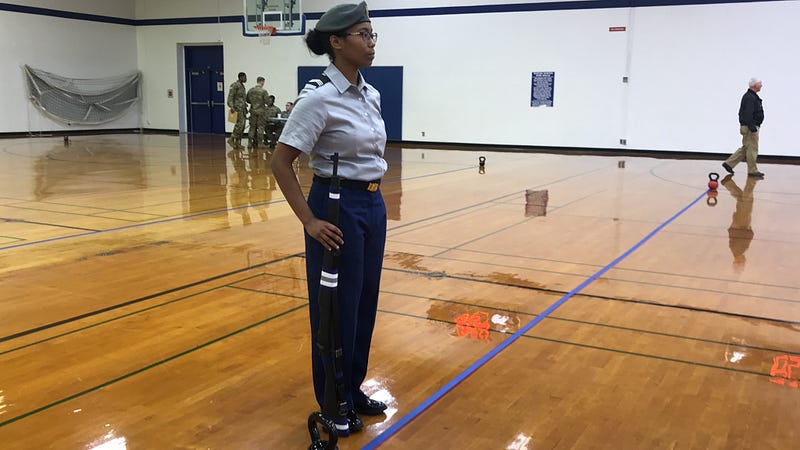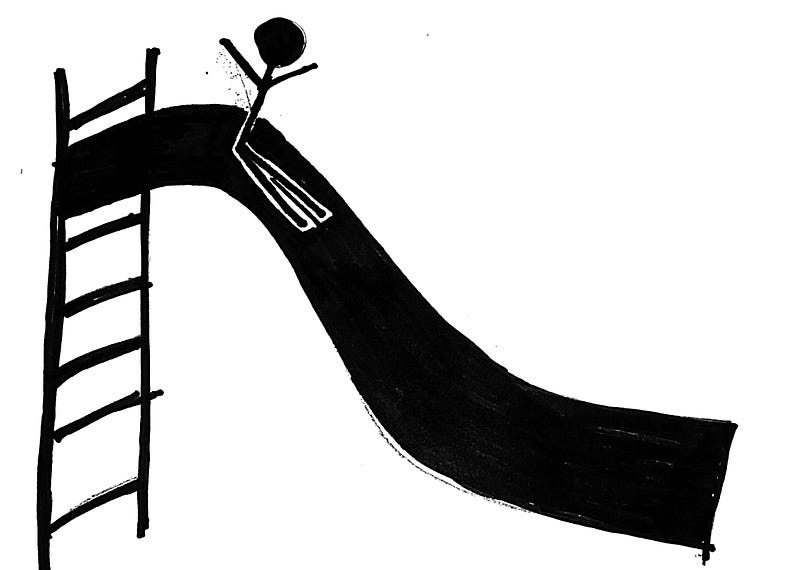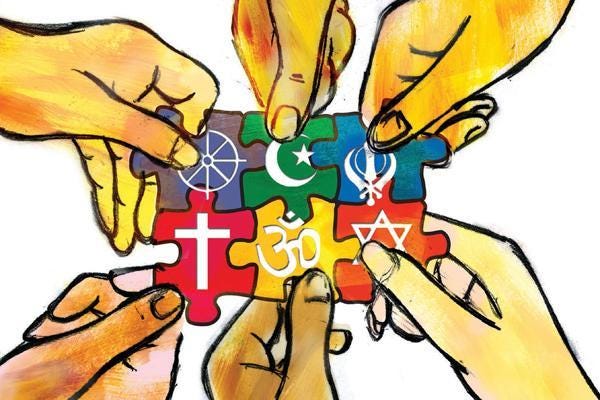I’m marching a platoon off the gym floor. Around me there’s clapping, cheering, and the proud and expectant faces of parents. Despite all the happiness engulfing others around me, I feel failure as a commander for messing up the routine — a pain so deep, I’m fighting back tears. Just as I’m reaching my brink and ready to hide, I’m surrounded by my peers in hugs, praises, firm handshakes. “Just remember,” one of my instructors says while giving me a hug, “you helped march all those kids out there so their families could see. I’m proud of you.”
JROTC stands for the Junior Reserve Officer Training Corps, a program sponsored by the U.S. Armed Forces that teaches some military education and citizenship skills. It’s an elective class that occurs throughout the entire school year, although it becomes more selective in further grades due to the limited amount of students for each grade. Within it, there are teams offered for cadets (students) wishing to have an extracurricular involvement.
I joined the program my freshman year, dreading it based on some imagined idea of vigorous exercise and an extensive military focus on education. My parents’ encouraging words helped me choose the class despite this, a knowing gleam in their eyes about something I hadn’t been expecting at that time. Their expectation proved true as opportunities arose to better myself not only as a person, but a citizen of my school and county, and as I built an unexpected connection with my peers from working towards our common goals.
During my freshman year, I was incredibly insecure and shy. This barrier challenged me socially, especially when it came to joining the teams the program offered. I missed quite a bit because I anxiously convinced myself that participating in them wouldn’t be worth it. It wasn’t until I pushed myself out of my comfort zone, tired of doing nothing with so much time, that I joined the drill team.
The drill team focuses on the aspects of marching in the military. We compete throughout the school year, working to hone our self-discipline and memorize our drill routines. And while freshman year on this team was a bit of a challenge, as I was only beginning to learn everything, it paved the way for a better future my following school year: a future in which I learned to step up as a leader not only in commanding for the teams, but motivating my peers around me as well.
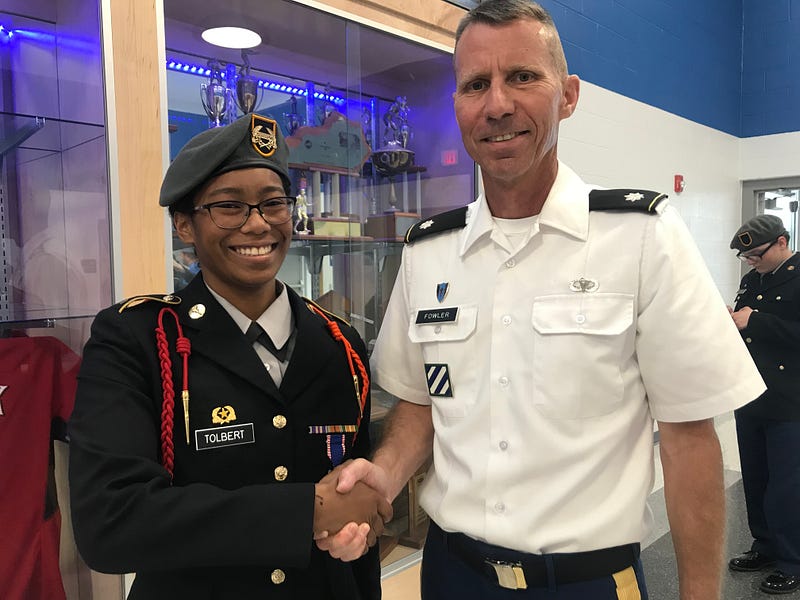
Sophomore year introduced a more confident version of me, something I especially wanted to have more of in JROTC. While I had done my best during the previous year, even becoming friends with some of the juniors in the program, this year I wanted to do more. I wanted to help the incoming freshmen who might’ve been like me — anxious, self-doubting — become the leaders I knew they could be.
It wasn’t without its trials though. Though I was more self-assured, I was still learning to quell the anxious part of me, especially as I’d taken on more commander positions and started leading the formations. I was praised for always taking my career so seriously, something that’s a source of pride and pain even now. It’s because of this intensity that I started putting pressure on myself to do better, be better, ignoring all the progress I’d made in favor of the progress I had yet to achieve. The friends I’d made helped remind me of our achievements when I needed it the most.
I made even more connections the second year of being on the drill team, more so with the freshmen who I found often sought me for advice and help. I struggled with them as we cried, vented, and motivated our way through a season of ups and downs. Even as the rest of the school year concluded mostly in Exhibition (drill movements with exhibition rifle performances) practices, I felt a strong familial responsibility and care for them
I also joined the Raiders team that year, competing in rigorous courses outside. I struggled through the physical and mental challenge of pushing my body as I trained alongside a team of hardworking, motivating peers from all grades. I developed greater confidence in myself: not only from how much stronger I felt through exercising on the team, but also through the relationships I was developing with my teammates.
It was these connections, these people, who helped rekindle my self confidence and open my heart to friendship in a way I was (and still can be) hesitant about. And as I struggle with socializing because of the limitations the COVID-19 quarantine has placed upon us, I’m grateful for the friends I’ve made through my two years in JROTC who are helping me get through it, whether they know it or not.
The messages I receive, especially from my graduated senior friends, I hold close to my heart, feeling a bittersweet pride for them as they move on to keep doing great things in their lives. The conversations I have with my other peers, however short, I remember because sometimes the quiet of quarantine takes away my words so much, I can disappear for days.
And just when I think of restarting it all, of trying to submerge myself in that somewhat-antisocial state of self-kept silence and mistrust I began my high school career with, I remember the smiling friends, the goofballs, the dependable and uplifting faces of my peers, and push myself to keep the friendships I have earned. I remind myself, I deserve. As the JROTC motto states, I continue to motivate [others] to be better citizens.

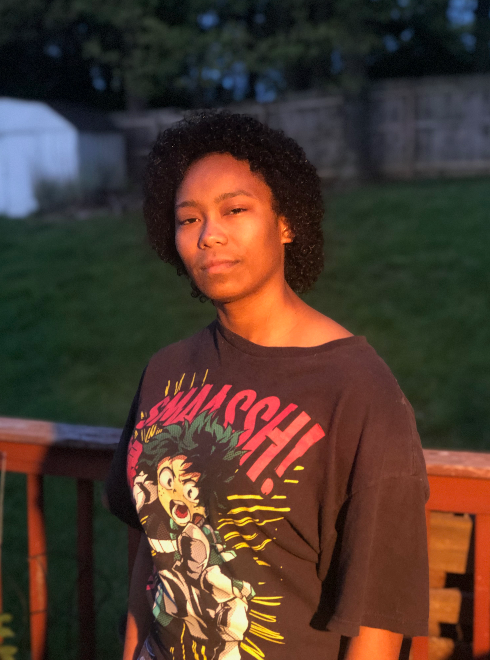
Natalie Tolbert is a rising junior at North Hardin High School.
The opinions expressed on the Forum represent the individual students to whom they are attributed. They do not reflect the official position or opinion of the Prichard Committee for Academic Excellence or the Student Voice Team. Read about our policies.


